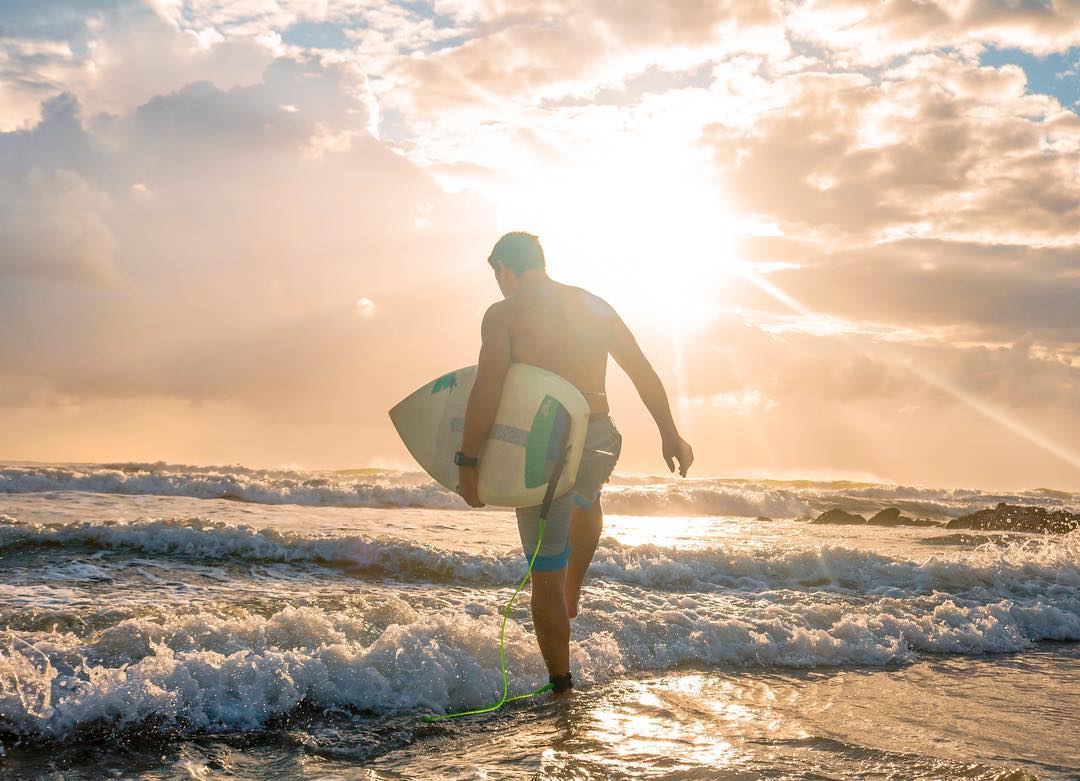My Insight Hub
Your go-to source for daily insights and updates.
Surf's Up and Stoked: The Secrets of Catching Your First Wave
Discover the ultimate secrets to catching your first wave and get stoked for an unforgettable surfing adventure!
Essential Surfing Gear for Beginners: What You Need to Ride Your First Wave
Surfing is an exhilarating experience, but having the right gear is essential for beginners looking to ride their first wave. At the top of your list should be a surfboard. For those just starting out, a longboard is typically the best option, as its size and stability make it easier to balance and catch waves. Additionally, consider investing in a wetsuit to keep you warm in cooler waters. A wetsuit not only provides insulation but also helps protect against sunburn and abrasions. To get started, check out this beginner’s guide to surfboards for more details on choosing the right board.
Another crucial item in your surfing kit is the leash, which connects you to your board and prevents it from drifting away after a wipeout. Beginners should also consider acquiring a rash guard to protect their skin from irritation caused by the board and wax. Don’t forget to include sunscreen specifically designed for water sports, as it provides the necessary protection against harmful UV rays while you’re out in the sun. For a comprehensive overview of essential surfing gear, you might find this surfer’s essentials guide helpful.

Top 5 Tips for Perfecting Your Surfing Technique
Perfecting your surfing technique requires a combination of practice, patience, and guidance. Here are the top 5 tips to help you enhance your skills on the waves:
- Master the Pop-Up: The pop-up is a crucial maneuver for getting from prone to standing position swiftly. Focus on timing and fluidity. Practicing on land can help you nail the technique before hitting the water. For a detailed breakdown of the pop-up technique, check out this guide from Surfer Today.
- Practice Paddling: Efficient paddling is key to catching waves. Ensure you use long strokes, and engage your core for stability. Improving your paddling can help you reach the desired position before a wave arrives.
- Understand Wave Dynamics: Knowing how waves break will dramatically improve your ability to choose and ride them. Spend time observing the ocean to learn about the best spots for catching waves. For more insights, visit Surfing Waves.
- Maintain Balance and Posture: Staying balanced on the board is essential for riding waves successfully. Keep your knees slightly bent and your weight distributed evenly. Practicing on flat ground can also aid in developing a better sense of balance.
- Learn from Others: Watching experienced surfers can provide invaluable tips and techniques. Don’t hesitate to ask for feedback from fellow surfers or even consider taking lessons from a local surf school.
How to Choose the Right Surf Spot for Your Skill Level
Choosing the right surf spot is crucial for any surfer, whether you're a beginner or an experienced wave rider. One of the first things to consider is your skill level. Beginners should look for locations that offer smaller, gentler waves, which provide a safe environment for learning. Popular beginner-friendly spots include beaches designed for novice surfers. On the other hand, experienced surfers might seek out challenging breaks with bigger waves and complex conditions. Researching tide tables, swell forecasts, and local surf reports can help in selecting an appropriate spot that matches your capabilities.
Another key factor to consider is the crowd factor. Some popular beaches can become overwhelmed with surfers, making it essential to find less-crowded alternatives. A good strategy is to check out local surf guides that often highlight lesser-known locations that cater to different skill levels. Additionally, talking to local surfers can provide insights into which spots may be suitable for you, as they can offer valuable tips and suggestions based on current conditions. Remember, the goal is to have fun and improve your skills, so finding the right surf spot is key to enjoying your time in the water!